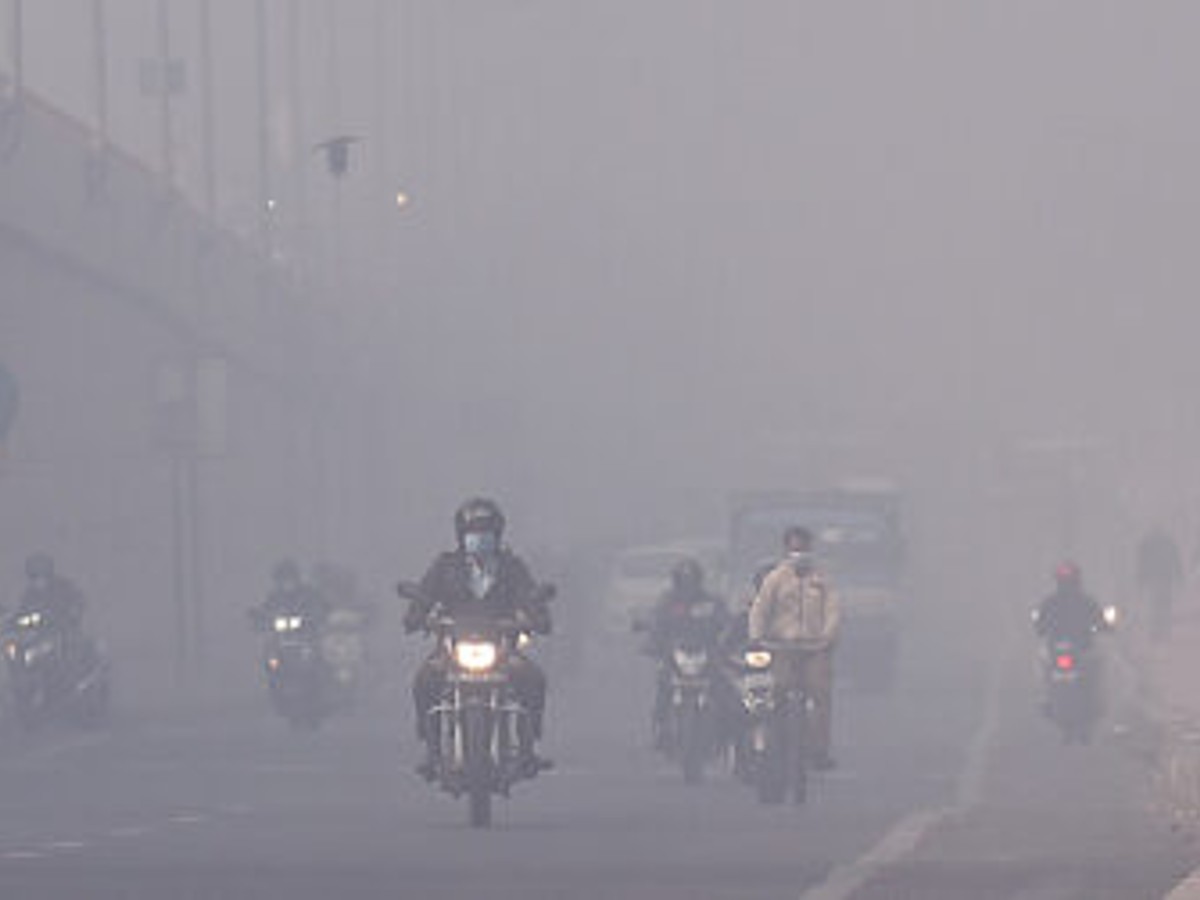
Thick grey haze continued to smother Delhi for the third consecutive day on Tuesday, with pollution levels remaining dangerously high at 488 in the ‘severe plus’ category.
Calm winds and a drop in temperatures made it difficult for pollutants to disperse. The cold air trapped dust and smoke from stubble burning in nearby areas, exacerbating the situation.
On Monday, Delhi recorded its coldest night of the season so far, with the temperature dropping from 16.2 degrees Celsius to 12.3 degrees Celsius, according to the India Meteorological Department (IMD).
At 9 am on Tuesday, the city’s Air Quality Index (AQI) stood at 488, as reported by the Central Pollution Control Board (CPCB).
Out of the 32 monitoring stations across Delhi, 31 recorded AQI levels exceeding 480, with two stations—Alipur and Sonia Vihar—reaching the maximum of 500.
On Monday, Delhi saw its second-worst air quality in six years, with the AQI soaring to 494.
Delhi’s air quality first entered the ‘severe plus’ category on Sunday, prompting the implementation of stricter pollution control measures under Stage IV of the Graded Response Action Plan (GRAP) the following morning.
These measures include a ban on trucks entering the city unless they carry essential goods or use clean fuel (LNG/CNG/BS-VI diesel/electric), as well as a halt to construction and demolition activities and school closures.
GRAP, introduced in 2017, is a set of anti-pollution measures followed in Delhi and its surrounding areas.
The plan categorises air quality in Delhi-NCR into four stages: Stage 1 – ‘poor’ (AQI 201-300), Stage 2 – ‘very poor’ (AQI 301-400), Stage 3 – ‘severe’ (AQI 401-450), and Stage 4 – ‘severe plus’ (AQI above 450).
Also Read: Delhi’s severe pollution takes centre stage at COP29
Mahesh Palawat, Vice President of Meteorology and Climate Change at Skymet Weather, explained that the combination of dense fog in Punjab, Haryana, and Delhi, along with slow northwest winds, was trapping pollutants in the air.
“The falling temperatures are pushing the pollution closer to the surface with cold winds. Without an increase in wind speed, significant improvement seems unlikely in the next two to three days. However, rain later this week could help alleviate the situation,” he said.
On Tuesday morning, fog reduced visibility to just 400 metres, and it is expected to persist throughout the day, according to the IMD.
The humidity was recorded at 89% at 8:30 am, and the maximum temperature is expected to reach 24 degrees Celsius, the IMD added.
(With inputs from PTI)
The likely Rs 1,000 crore sale of the Tehri Garhwal House, former royal residence on…
On the principle of 'Sarvajan Hitaya, Sarvajan Sukhaya' -- Welfare for all, Happiness for all…
With hundreds reported missing in Delhi this year, this guide explains how families can use…
The case came to light after a 35-year-old woman from Panipat alleged that she had…
During the investigation, CCTV footage helped identify the suspects, according to Delhi Police
The launch took place during the inauguration of the Delhi Police Exhibition Hall at Connaught…